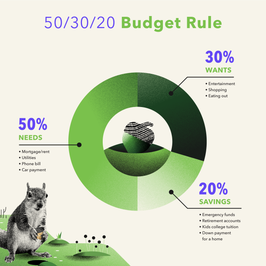Average One Bedroom Apartment Rent in 10 U.S. Cities

The median monthly cost for a one-bedroom apartment rose 11.6% over the course of 2021, according to Zumper’s 2021 National Rent Report, and some cities have risen well beyond that.
While most people may think one-bedrooms have surged the most in expensive states like California or New York, they’re actually rising faster in Florida.
Average One Bedroom Apartment Rent Increases in 10 U.S. Cities
Here are the 10 U.S. cities where costs have jumped the most.
10. St. Petersburg, Florida
Median one-bedroom rent: $1,580
Year-over-year growth: 24.4%
9. Mesa, Arizona
Median one-bedroom rent: $1,210
Year-over-year growth: 24.7%
8. Boise, Idaho
Median one-bedroom rent: $1,410
Year-over-year growth: 24.8%
7. Henderson, Nevada
Median one-bedroom rent: $1,590
Year-over-year growth: 25.2%
6. Jacksonville, Florida
Median one-bedroom rent: $1,220
Year-over-year growth: 27.1%
5. Glendale, Arizona
Median one-bedroom rent: $1,200
Year-over-year growth: 27.7%
4. New York, New York
Median one-bedroom rent: $3,190
Year-over-year growth: 32.4%
3. Orlando, Florida
Median one-bedroom rent: $1,620
Year-over-year growth: 32.8%
2. Tampa, Florida
Median one-bedroom rent: $1,630
Year-over-year growth: 38.1%
1. Miami, Florida
Median one-bedroom rent: $2,280
Year-over-year growth: 38.29%
Affordability Issues
Experts say one reason for the rent surge is high demand from renters and more competition for open apartments in hot markets. Florida has five of the top 10 cities with the biggest year-over-year jumps in one-bedroom rent. And in New York, the most expensive place in the U.S. ($3,190), the median one-bedroom rose 32.4%.
“The issue of affordability has been mounting for decades,” says Ruth Shin, the CEO and founder of real estate startup PropertyNest. “As local, state, and federal governments have not done enough to strategically combat the issue of affordability pre-pandemic, [it has] aggravated the situation.”
It’s no wonder, then, that renters are curious about their options now. Google searches for “rent relief” spiked a staggering 400% from 2020 to 2021, according to recent data from Point2Homes, which searched frequently occurring real estate terms in 2020 and 2021 to find the average search volume, and compared their average monthly searches to 2019. Meanwhile, “eviction moratorium” queries rose 396% over the same period.
Reach out to your landlord
Big rent hikes can have big consequences if you aren’t financially prepared, but there are still options for help if you need it. A handful of cities and states have set their own protections.
“Depending on where you live you may have access to rental payment assistance either through local or state government or non-profit organizations,” says Shin.
Most New York and New Jersey renters can’t be evicted until January, for instance. In Connecticut and Virginia, landlords must apply for federal aid before they can evict a tenant.
Try asking your landlord to lend a hand, experts suggest. While there’s no guarantee this approach will work, they may be willing to negotiate partial payments or let you pay some of the rent now and some later while you get back on your feet if you’re open about your situation.
“You could inquire about a longer lease or paying more upfront,” said Jeff Proctor, co-owner of money resource site DollarSprout.com. “Landlords spend a lot of time chasing after late rent, so if you can save them the hassle, they may be willing to help you out on costs.”
Whatever you do, adds Shin, if you need help, “always reach out to your landlord first and explain your situation.”
Keep an eye on local rent increase regulations to gauge what kind of price hikes you could face when your lease renews. A rent calculator could show how fair your rate is versus similar places near you.
This material has been presented for informational and educational purposes only. The views expressed in the articles above are generalized and may not be appropriate for all investors. The information contained in this article should not be construed as, and may not be used in connection with, an offer to sell, or a solicitation of an offer to buy or hold, an interest in any security or investment product. There is no guarantee that past performance will recur or result in a positive outcome. Carefully consider your financial situation, including investment objective, time horizon, risk tolerance, and fees prior to making any investment decisions. No level of diversification or asset allocation can ensure profits or guarantee against losses. Article contributors are not affiliated with Acorns Advisers, LLC. and do not provide investment advice to Acorns’ clients. Acorns is not engaged in rendering tax, legal or accounting advice. Please consult a qualified professional for this type of service.








